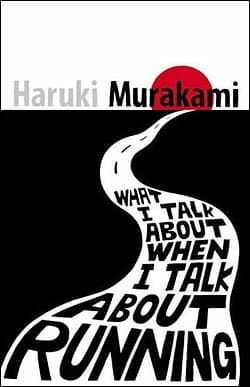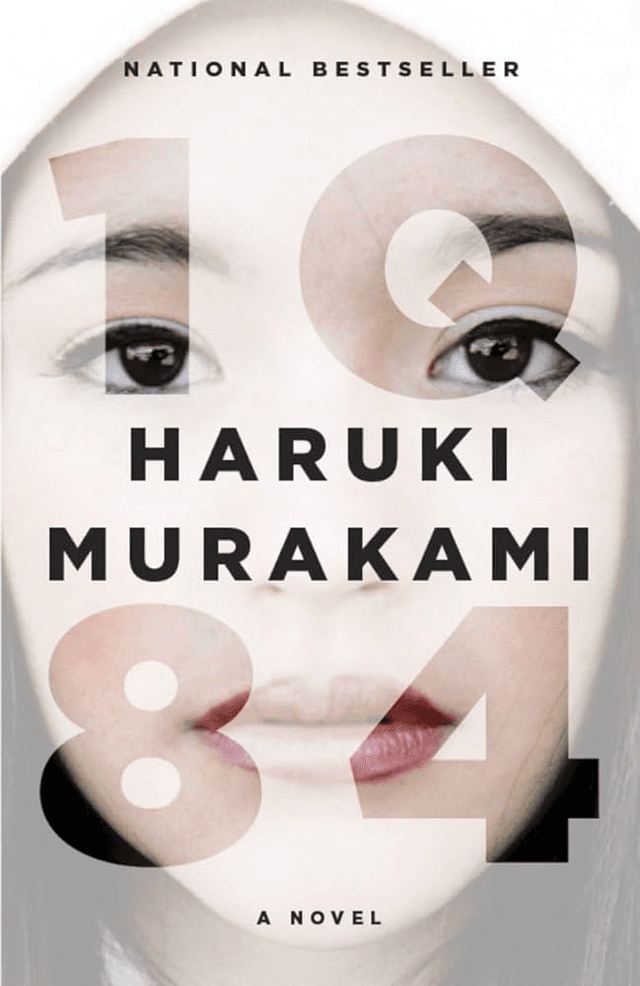What I Talk About When I Talk About Running vs. 1Q84
What I Talk About When I Talk About Running
What I Talk About When I Talk About Running is a memoir by Haruki Murakami where he talks about two things that define a big part of his life: running and writing. Murakami didn’t always plan on being a novelist. He was running a jazz bar in his twenties when, while watching a baseball game, he suddenly thought, “I could write a novel.” He gave it a shot, it worked out, and he eventually sold his bar to focus on writing full-time. But sitting at a desk all day, smoking and not moving much, wasn’t doing his health any good. That’s when he picked up running. For Murakami, running is more than just exercise—it’s part of his routine and, in a way, a metaphor for writing. Both take endurance. Both are long hauls where you push yourself day after day, even when you don’t feel like it. The book follows him as he trains for marathons, competes in triathlons, and grapples with the slow decline of his physical abilities as he ages. He talks a lot about acceptance—accepting getting older, accept...
1Q84
She has entered, she realizes, a parallel existence, which she calls 1Q84 —“Q is for ‘question mark.’ A world that bears a question.” Meanwhile, an aspiring writer named Tengo takes on a suspect ghostwriting project. He becomes so wrapped up with the work and its unusual author that, soon, his previously placid life begins to come unraveled. As Aomame’s and Tengo’s narratives converge over the course of this single year, we learn of the profound and tangled connections that bind them ever closer: a beautiful, dyslexic teenage girl with a unique vision; a mysterious religious cult that instigated a shoot-out with the metropolitan police; a reclusive, wealthy dowager who runs a shelter for abused women; a hideously ugly private investigator; a mild-mannered yet ruthlessly efficient bodyguard; and a peculiarly insistent television-fee collector.

Reviews
Reviewed on 2/28/2024
I read this book when I first started running long distance. I was living in Chiang Mai and I'd go this huge park a couple of times a week and just run loops around the lake. At the end of my run I'd grab a milk tea and a banana bread from a local coffee shop and just read a few pages. Great memories of many chill evenings, running and reading about running.
Reviews
| Item | Votes | Upvote |
|---|---|---|
| Easy read | 1 | |
| Motivating | 1 | |
| Peaceful | 1 |
| Item | Votes | Upvote |
|---|---|---|
| No cons yet, would you like to add one? | ||
| Item | Votes | Upvote |
|---|---|---|
| No pros yet, would you like to add one? | ||
| Item | Votes | Upvote |
|---|---|---|
| No cons yet, would you like to add one? | ||
Frequently Asked Questions
'What I Talk About When I Talk About Running' is focused on personal growth through the lens of running and writing, making it an inspiring read for those looking to improve themselves. It offers motivational insights and a peaceful narrative that resonates with readers seeking encouragement in their own journeys. In contrast, '1Q84' delves into complex themes of parallel realities and intricate character connections, which may appeal more to readers interested in philosophical explorations and intricate storytelling rather than straightforward personal growth.
'What I Talk About When I Talk About Running' presents a straightforward narrative that is easy to follow, focusing on Haruki Murakami's experiences with running and writing. It is structured like a diary, making it accessible for readers. On the other hand, '1Q84' features a complex and layered narrative with multiple characters and intertwining plots, which may require more effort to fully grasp. Therefore, for readers seeking a simpler story, 'What I Talk About When I Talk About Running' would be the better choice.
'What I Talk About When I Talk About Running' is more suitable for casual readers due to its easy readability and motivational themes. It appeals to a broad audience, including those who may not typically read extensively. In contrast, '1Q84' is more complex and may require a deeper commitment to fully appreciate its intricate narrative and themes, making it less ideal for casual readers.
'What I Talk About When I Talk About Running' is a memoir by Haruki Murakami that explores the intertwined themes of running and writing. Murakami shares his journey from running a jazz bar to becoming a novelist, detailing how running became a crucial part of his life and a metaphor for his writing process. The book reflects on endurance, acceptance of aging, and the highs and lows of both running and writing.
Pros of 'What I Talk About When I Talk About Running' include its easy readability, motivating content, and the peaceful tone of Murakami's writing. There are no cons listed for this book, indicating that readers generally find it to be a positive experience.
Haruki Murakami is a renowned Japanese author known for his unique blend of magical realism, surrealism, and themes of loneliness and existentialism. He gained international fame with novels such as 'Norwegian Wood' and 'Kafka on the Shore.' In 'What I Talk About When I Talk About Running,' he shares personal insights into his life as a writer and runner.
The writing style of 'What I Talk About When I Talk About Running' is straightforward and conversational, as if Murakami is sharing his thoughts over coffee. He often includes personal anecdotes and reflections, making the narrative relatable and engaging for readers.
In 'What I Talk About When I Talk About Running,' memorable moments include Murakami's experiences training for marathons, his reflections on aging and acceptance, and the simple joys of running, such as the satisfaction of finishing a race and enjoying a cold beer afterward. His vivid descriptions of running the original marathon route in Greece also stand out.
'1Q84' is a novel by Haruki Murakami. It follows the story of Aomame, who realizes she has entered a parallel existence she calls 1Q84, and Tengo, an aspiring writer who becomes entangled in a suspect ghostwriting project. As their narratives converge, the novel explores their profound and tangled connections with a variety of unique characters, including a dyslexic teenage girl, a mysterious religious cult, a reclusive wealthy dowager, a hideously ugly private investigator, a ruthlessly efficient bodyguard, and a peculiarly insistent television-fee collector.
'1Q84' is written by Haruki Murakami, a renowned Japanese author known for his distinct blend of fantasy and reality, often exploring themes of loneliness and existentialism.
The main themes in '1Q84' include parallel worlds, the nature of reality, love and connection, and the power of storytelling. The novel delves into how these themes interweave in the lives of its characters.
'1Q84' is unique for its intricate plot, rich character development, and the seamless blend of the fantastical with the mundane. The novel's structure, alternating between the perspectives of Aomame and Tengo, adds depth and complexity to the narrative.




















